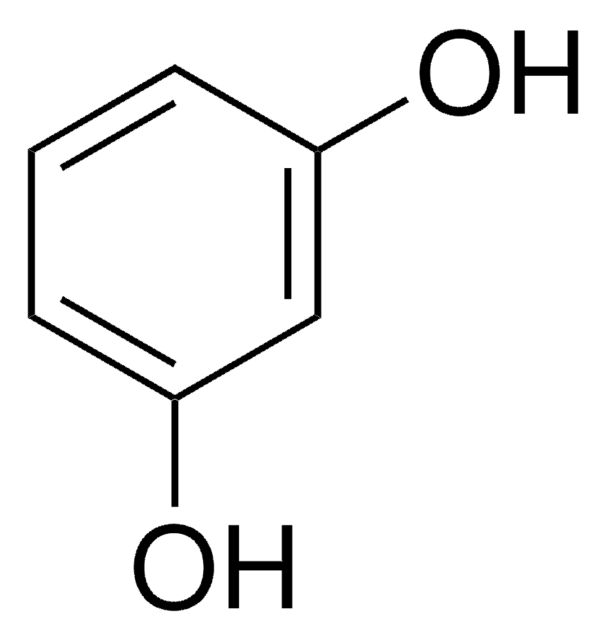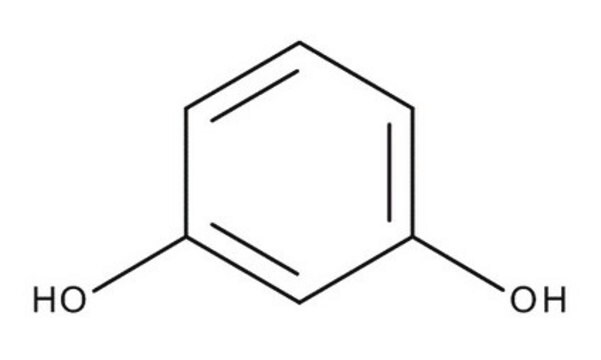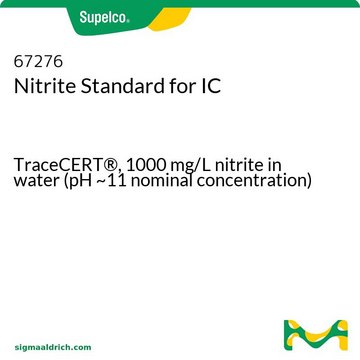Y0000767
Resorcinol
European Pharmacopoeia (EP) Reference Standard
Sinónimos:
1,3-Bencenodiol
About This Item
Productos recomendados
grado
pharmaceutical primary standard
densidad de vapor
3.8 (vs air)
presión de vapor
1 mmHg ( 21.1 °C)
familia API
resorcinol
temp. de autoignición
1126 °F
fabricante / nombre comercial
EDQM
bp
178 °C/16 mmHg (lit.)
mp
109-112 °C (lit.)
aplicaciones
pharmaceutical (small molecule)
formato
neat
temp. de almacenamiento
2-8°C
cadena SMILES
Oc1cccc(O)c1
InChI
1S/C6H6O2/c7-5-2-1-3-6(8)4-5/h1-4,7-8H
Clave InChI
GHMLBKRAJCXXBS-UHFFFAOYSA-N
¿Está buscando productos similares? Visita Guía de comparación de productos
Descripción general
Aplicación
Envase
Otras notas
Producto relacionado
Palabra de señalización
Danger
Frases de peligro
Consejos de prudencia
Clasificaciones de peligro
Acute Tox. 4 Oral - Aquatic Acute 1 - Aquatic Chronic 3 - Eye Dam. 1 - Skin Irrit. 2 - Skin Sens. 1B - STOT SE 1 Oral - STOT SE 2 Oral
Órganos de actuación
Central nervous system,Blood, Respiratory system
Código de clase de almacenamiento
6.1C - Combustible acute toxic Cat.3 / toxic compounds or compounds which causing chronic effects
Clase de riesgo para el agua (WGK)
WGK 2
Punto de inflamabilidad (°F)
260.6 °F - closed cup
Punto de inflamabilidad (°C)
127 °C - closed cup
Elija entre una de las versiones más recientes:
Certificados de análisis (COA)
Lo sentimos, en este momento no disponemos de COAs para este producto en línea.
Si necesita más asistencia, póngase en contacto con Atención al cliente
¿Ya tiene este producto?
Encuentre la documentación para los productos que ha comprado recientemente en la Biblioteca de documentos.
Los clientes también vieron
Protocolos
Separation of Resorcinol 50 mg/mL; Pyrocatechol; 2-Methylresorcinol; 4-Methylcatechol; 2,5-Dimethylresorcinol 50 mg/mL; 3-Methylcatechol 50 mg/mL; 4-Nitrocatechol 50 mg/mL
Nuestro equipo de científicos tiene experiencia en todas las áreas de investigación: Ciencias de la vida, Ciencia de los materiales, Síntesis química, Cromatografía, Analítica y muchas otras.
Póngase en contacto con el Servicio técnico








